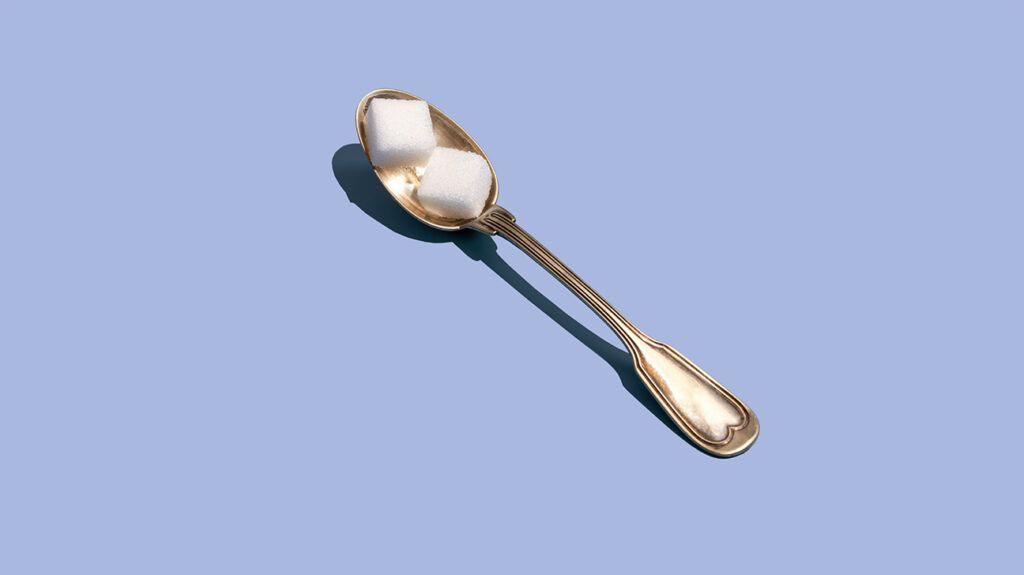Is your daily sugar boost contributing to your depression? Here’s what the research says.

Our hunter-gatherer ancestors got their energy from berries, corn, and other sweet whole foods. These foods were very nutritious, so humans evolved to have a strong taste for sweets.
In an age where technological advances can concentrate, refine, condense, and artificially manufacture more sugar in a single serving than is natural for the body to intake, this preference for sweet things can get us into trouble.
In the United States, adults consume
Research suggests there’s a relationship between the two.
Several studies have shown links between sugar and depression.
Sleep disturbances and fatigue are among the symptoms of depression, and inadequate sleep can spur sugar cravings. A
One
A
There are several reasons a diet high in added sugars and refined carbohydrates may fuel depression. These include one or more of the following factors:
- chronic inflammation
- nutritional deficiencies
- unstable blood sugar levels
- poor gut health
- low BDNF (brain derived neurotropic factor)
Chronic inflammation
People who consume a diet high in sugar are more likely to have chronic inflammation, which
Chronic inflammation is a form of low-level, long-term inflammation. This is different from acute inflammation — the redness, pain, and swelling that occurs when you burn yourself, for example.
You probably wouldn’t even know you have chronic inflammation. But your body might think it’s under constant attack, so the immune system keeps fighting indefinitely. This can lead to disease, including depression.
Nutritional deficiencies
Whole foods include all the nutrients needed to digest them. When folks eat processed foods (stripped of their nutrients), the body must pull these vitamins and minerals from other places.
Low levels of nutrients, such as vitamin D, folate, B12, omega-3 fatty acids, and several minerals, are linked to depression.
In addition,
Unstable blood sugar levels
Whole foods such as fruits and vegetables include fiber, which slows their absorption and keeps blood sugar levels steady.
In contrast, processed foods, like candy, sugary drinks, and refined carbohydrates, have a high glycemic index (GI) — your body absorbs them immediately and spikes your blood sugar levels.
A
The study found that women who consumed a high-glycemic diet, such as refined grains and added sugars (sugars not naturally found in whole foods), had greater rates of depression. In contrast, those who ate more fiber, milk products, fruits, and vegetables had lower odds of depression.
Poor gut health
Healthy gut function is essential to produce hormones and neurotransmitters such as dopamine and serotonin. Diet has a significant effect on gut health, and a diet high in sugar can cause an imbalance in gut bacteria.
Low BDNF
BDNF (brain-derived neurotrophic factor) is a protein that plays a role in the growth and maintenance of brain cells.
Antidepressants help
In a quest to avoid sugar, some people opt for alternative sweeteners, such as aspartame — an artificial sweetener commonly used in diet sodas.
Research from 2017 shows that aspartame is linked to behavioral and cognitive problems. Some of these symptoms include:
- irritability
- depression
- insomnia
- learning problems
- headaches
- seizures
Splenda (sucralose) is another commonly used alternative sweetener. Research shows Splenda is linked to poor gut health and inflammation, which are linked to depression.
Stevia, a natural sweetener without calories, is derived from the leaves of a plant in the chrysanthemum family.
Research on Stevia has been mixed. While it may help you lose weight and lower cholesterol, some 2020 research suggests it may disrupt communications between different bacteria in the gut microbiome.
Erythritol, a sugar alcohol, may be a healthier sugar substitute in moderation over alternatives.
The American Heart Association recommends keeping added sugars to 100 calories a day (about 6 teaspoons or 24 grams of sugar) for women, and no more than 150 calories a day (about 9 teaspoons or 36 grams of sugar) for men.
You may opt to stick to fresh or (unsweetened) dried whole fruit for your daily sweets when managing depression, including high-pectin (fiber helpful for the gut) fruits, such as:
- apples
- blackcurrants
- gooseberries
- oranges
- plums
Other fiber-rich fruits in their natural form include:
- bananas
- kiwi
- mangoes
- raspberries
- strawberries
Outside of steering away from processed sweets, other strategies to curb sugar intake include:
- eating whole foods
- consuming more healthy fats, such as olive oil and avocados
- replacing refined carbs with whole grains
- getting enough sleep, as a lack of sleep can cause sugar cravings
The dopamine surge from a sugar rush can lift your mood temporarily, so it can be tempting to keep a diet chock-full of simple or artificial sweet ingredients.
But for long-term management of depression, you may want to make minor changes to your routine and diet where possible to increase your energy and support your mood. Favoring whole foods with naturally occurring ingredients, complex carbs, and omega-rich options can be most healthful.